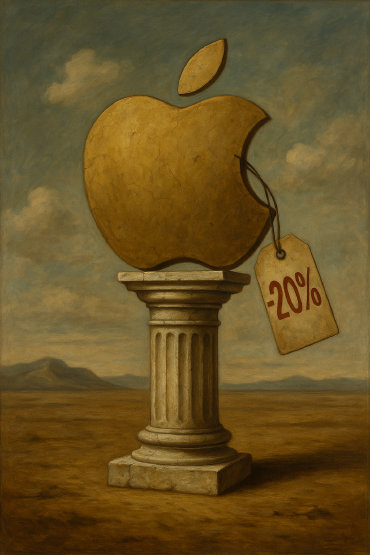Reconfiguration of Premium and 'Reset of Desire': The Message Delivered by Apple's iPhone 17 Price Reduction
The Transition Period of the Global Smartphone Market
As of 2025, the global smartphone market is entering a significant transition period against the backdrop of stagnation in technological innovation and a recalibration of consumer expectations. In particular, Apple's announcement to lower the price of the iPhone 17 is seen not just as a shift in sales strategy but as a symbolic event that shakes the entire market order. This raises fundamental questions about the criteria for value judgment in a technology-centric consumer society, the relationship between brands and prices, and the very concept of premium itself.
Apple's strategic decision
Apple's decision is not just a policy change. It is a response to the felt crisis in the intensifying global market, particularly in China and Asia, and a strategic shift aligned with changing consumer perceptions. With local companies like Huawei, Xiaomi, and Oppo quickly infiltrating the market, leveraging their competitive pricing as much as their technological capabilities, the 'unique premium' status that Apple once enjoyed is no longer a given.
Poor performance in the Chinese market
The sluggish performance in the Chinese market served as a strong warning. The realization that high pricing strategies are no longer effective in securing loyal customers, and that consumers are no longer willing to open their wallets solely based on brand names, has become increasingly clear. The notion of 'just get the latest' and 'premium equals best' has now become a thing of the past. Instead, keywords such as 'actual usage value,' 'reasonable pricing,' and 'sustainability' are emerging as new selection criteria.
Changes in Technological Innovation
The weakening of the perceived impact of technological innovation is also an important background. In a situation where the performance enhancement of smartphones is gradual and does not bring about dramatic changes in user experience, consumers are gradually shifting their expectations for new products from 'technological fantasy' to 'realistic value.' Amid this trend, Apple is seeking to establish a new position of 'reasonable premium' beyond simple price reduction.
iPhone 17 Discount Benefits
In May 2025, Apple led the perceptible changes in the market by offering discounts of up to 500 yuan (approximately $68.50) on the iPhone 17. This is not merely an incentive to boost sales, but signifies a fundamental shift in the brand's strategic direction. In the past, such discounts would have been viewed as 'diluting brand value', but now they are being embraced as a 'transparent pricing policy' that builds trust with consumers.
Redefining Premium
Along with this, there is a need to redefine the concept of premium. In the past, owning high-priced products was seen as a form of social status or identity expression, but now consumers judge value based on actual experiences and long-term benefits. Premium is no longer about being ‘expensive’ but about providing ‘sustainable satisfaction.’ At the core of this is not ‘loyalty to the brand’ but ‘trust in the brand.’
Changes in Consumer Desires
Looking at this trend from a macro perspective, the current market is experiencing a 'reset of desires.' Consumers are now prioritizing the rationality of choices over indiscriminate lust for ownership, and brands are being evaluated on tangible value rather than emotional aspiration. Apple's shift from a 'strategy solely for premium' to 'customer-centric value delivery' is not just a survival strategy, but a necessary redefinition of identity for a new era.
Conclusion and Market Outlook
In conclusion, Apple's recent price reduction symbolizes a structural shift in the smartphone market. The traditional equation of price and brand has been broken, and new criteria based on transparency, trust, and user experience have emerged. Future competition will unfold not based on 'name value', but on authentic value propositions grounded in 'actual utility'. This will ultimately act as a mechanism for fostering a healthier market ecosystem and a more mature consumer culture.
The New Role of Brands
Brands must now be entities that design 'relationships' with consumers, rather than just companies that sell products. Apple's recent decision, which stands at the forefront of this change, will be recorded as a significant turning point connecting the two streams of the future of the technology industry and the reshaping of consumer culture.

Post a Comment